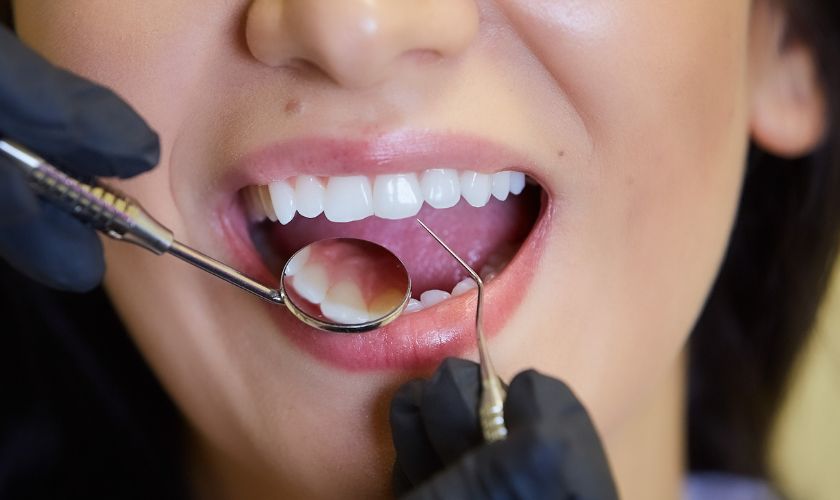Dental emergencies can be distressing and painful, often requiring immediate attention from a professional. Understanding the common causes and taking preventive measures can go a long way in safeguarding your oral health. In this comprehensive guide, we will delve into the various factors that contribute to dental emergencies and discuss effective strategies to prevent them. If you find yourself in a dental crisis, it is crucial to seek the expertise of an emergency dentist who can provide timely and appropriate care.
Common Causes of Dental Emergencies
1. Trauma and Accidents
One of the primary causes of dental emergencies is trauma or accidents. A sudden fall, sports-related injury, or vehicular accident can lead to fractures, dislodged teeth, or damage to the jaw. If you experience a blow to the face, it is essential to consult an emergency dentist promptly to assess and address any potential issues.
2. Untreated Tooth Decay
Tooth decay, if left untreated, can progress to more severe dental problems. Cavities that penetrate deep into the tooth can cause intense pain and lead to dental emergencies. Regular dental check-ups and timely treatment of cavities are crucial in preventing these situations.
3. Gum Infections
Gum infections, such as gingivitis or periodontitis, can cause swelling, pain, and even tooth loss if not treated promptly. These infections may require immediate attention from an emergency dentist to prevent further complications. Maintaining good oral hygiene practices, including regular flossing and brushing, can help prevent gum infections.
4. Abscessed Teeth
An abscessed tooth is a painful condition that occurs when a bacterial infection causes a pocket of pus to form around the tooth. This can lead to severe pain, swelling, and fever. Seeking prompt care from an emergency dentist is crucial to prevent the infection from spreading and causing more significant health issues.
5. Orthodontic Complications
Issues related to orthodontic appliances, such as braces or retainers, can sometimes lead to dental emergencies. Broken wires or brackets can cause discomfort and require immediate attention. Regular orthodontic check-ups and following proper care instructions can help prevent these emergencies.
6. Wisdom Teeth Problems
Impacted or partially erupted wisdom teeth can cause pain, swelling, and even infections. Monitoring the development of wisdom teeth and seeking timely intervention, if necessary, can help prevent complications and emergencies associated with these molars.
Prevention Strategies for Dental Emergencies
1. Regular Dental Check-ups
Scheduling regular dental check-ups is fundamental in preventing dental emergencies. Routine examinations allow your dentist to identify potential issues early on and address them before they escalate into emergencies. Consider finding a reliable dentist who offers emergency dentistry services for added peace of mind.
2. Maintain Good Oral Hygiene
Practicing good oral hygiene is crucial in preventing dental problems that may lead to emergencies. Brushing your teeth twice a day, flossing daily, and using an antiseptic mouthwash can help remove plaque and bacteria, reducing the risk of cavities, gum infections, and other oral issues.
3. Wear Protective Gear
If you participate in contact sports or activities with a risk of injury to the face, wearing protective gear such as mouthguards can significantly reduce the likelihood of dental trauma. Consult with your dentist to determine the most suitable protective measures for your specific needs.
4. Address Dental Issues Promptly
Ignoring dental problems can exacerbate issues and lead to emergencies. If you experience tooth pain, swelling, or any unusual symptoms, it is essential to seek prompt dental care. An emergency dentist in Colorado Springs can provide timely diagnosis and treatment to prevent the escalation of dental emergencies.
5. Be Mindful of Your Diet
Diet plays a significant role in oral health. Limiting the consumption of sugary and acidic foods can help prevent tooth decay and other dental issues. Additionally, staying hydrated promotes saliva production, which aids in maintaining a healthy oral environment.
6. Follow Orthodontic Care Instructions
If you wear orthodontic appliances, following the care instructions provided by your orthodontist is crucial. Regularly scheduled check-ups will allow your orthodontist to monitor the condition of your appliances and make any necessary adjustments, reducing the risk of orthodontic-related emergencies.
In conclusion, understanding the common causes of dental emergencies and adopting preventive measures are key components of maintaining optimal oral health. By prioritizing regular dental check-ups, practicing good oral hygiene, and seeking timely intervention for dental issues, you can significantly reduce the risk of dental emergencies. Remember that prevention is the best strategy, but in the event of a dental crisis, having access to emergency dentistry services can ensure swift and appropriate care for your oral health needs.
